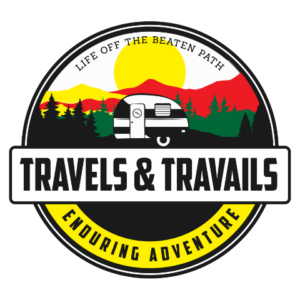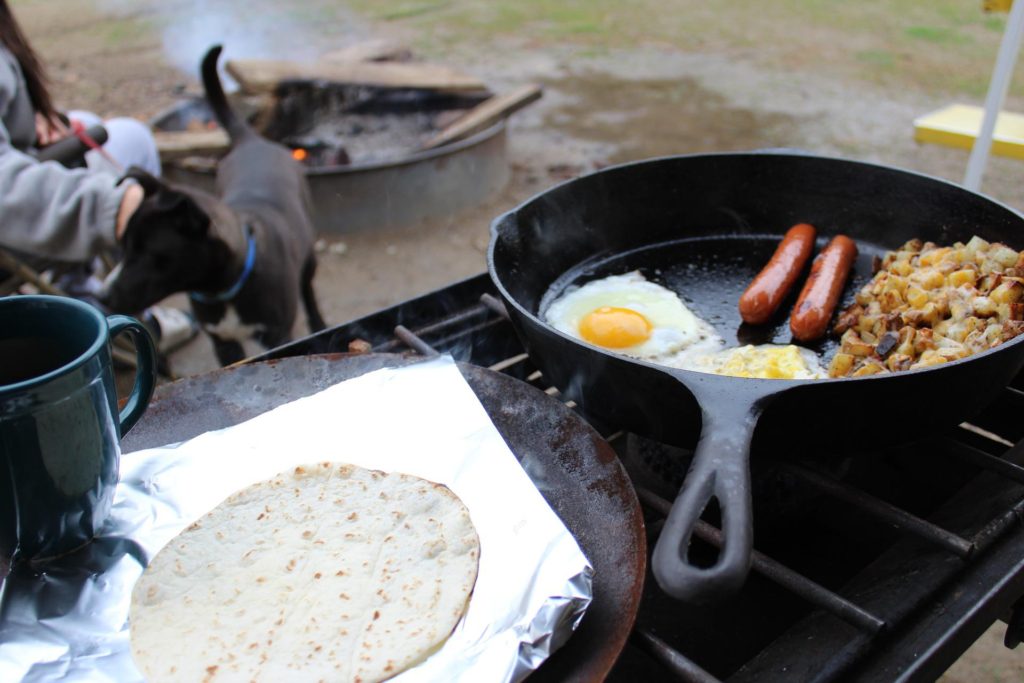
Between the costs of gas, electricity, and maintenance for your RV, your wallet is practically empty. You’ve gotta eat when on the road, but you’d like to do so in a way that doesn’t cost an arm and a leg. How can you eat cheaply while camping?
Here are some tips for cutting back on food costs when camping out:
- Make snacks instead of buying them
- Buy meat in bulk or on sale and freeze it
- Roast fruits for dessert
- Stock up on campfire staples
- Freeze your bread until you need it
- Fish for your meals
- Forage for food
There’s lots of great information coming up that will help you eat cheaply when camping. First, we’ll go over the pointers above, then we’ll recommend the cheapest food to eat when cooking on a campfire or on your RV stove.
Let’s get started!
7 Tips for Eating Cheap While Camping
Make Snacks Instead of Buying Them
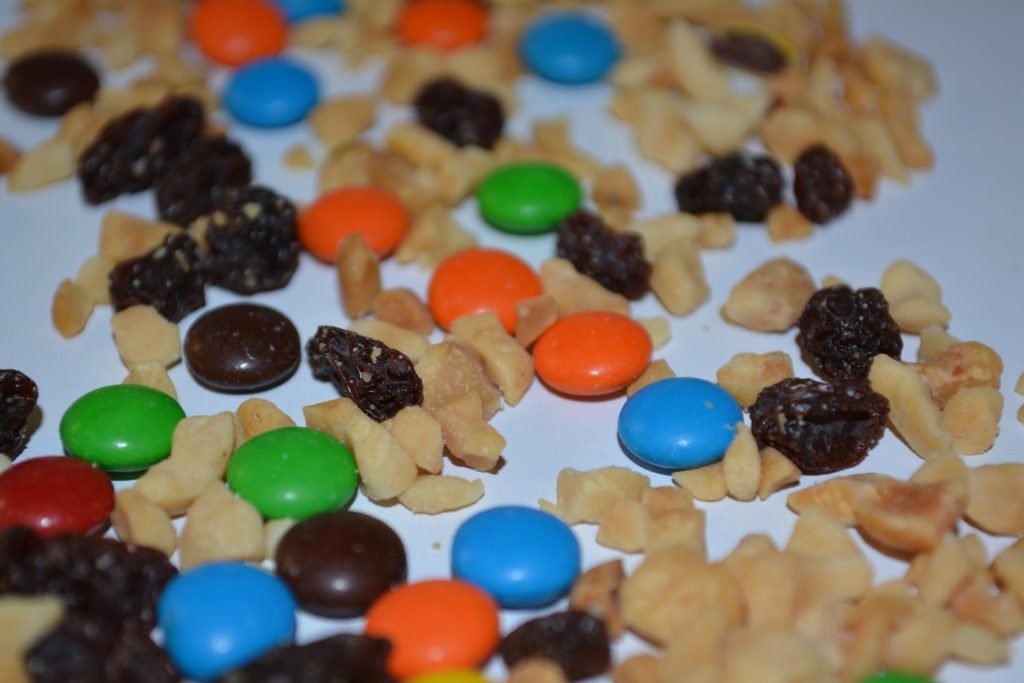
As your grocery bills continue to get exponentially higher, the last thing you’re going to want to do is fill your shopping cart with snacks ahead of your camping trip. They’re just so expensive.
Plus, your kids have a seemingly nonstop appetite, so a box of granola bars or crackers that could have lasted you a week or two will be gone in a day or two instead!
How about this – try making your own snacks.
We can’t guarantee these will last any longer than the store-bought snacks. Your family or friends won’t be able to get enough because the snacks will taste so fresh and flavorful.
You can omit the unhealthy ingredients that no one wants to ingest like preservatives, additives, and excess salt and sugar.
So what kinds of snacks can you make yourself? Granola bars are one treat that you can easily put together. Make some oatmeal and then add any ingredients you wish, from chocolate chips to nuts, honey, or caramel.
Keep the homemade granola bars in your freezer at home before your trip or in the RV freezer to help them last longer.
Trail mix is also so easy to prep that your kids can help even if they’re younger. You can make trail mix healthy with hearty ingredients such as almonds, pumpkin seeds, and/or raisins.
If the kids want to add treats like M&Ms or chocolate chips, they can – but in moderation, of course.
Even making your own beef jerky, although a little more involved, is very satisfying.
You’ll have a toothsome treat you can reach for whenever you want more protein in your diet. Better yet, you know your jerky isn’t oversaturated in salt and preservatives.
Buy Meat in Bulk or on Sale and Freeze It Until You Need It
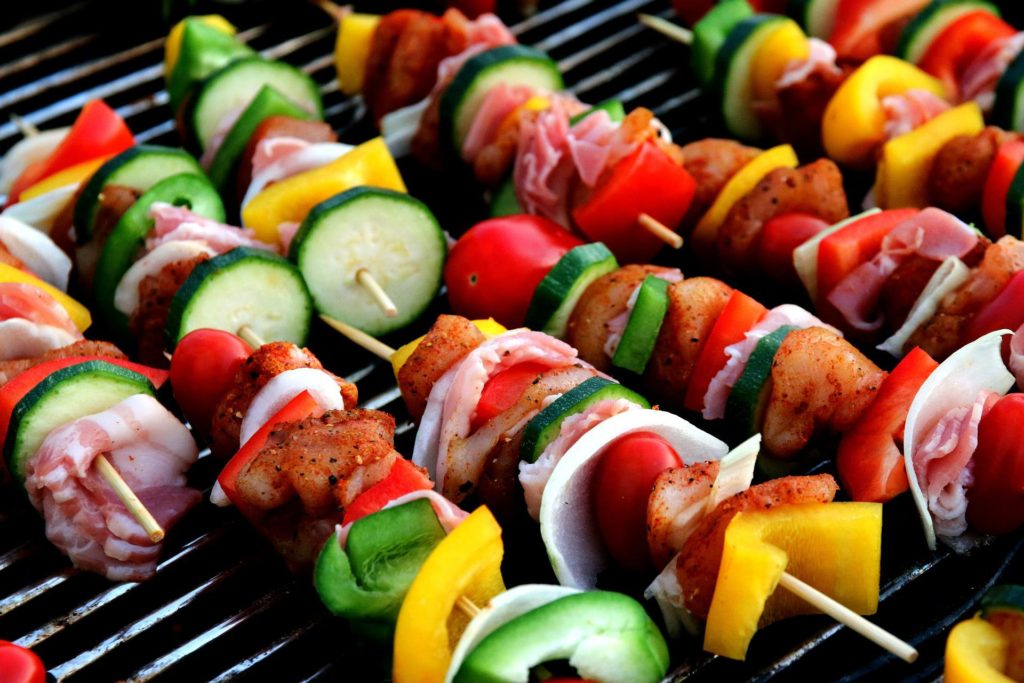
Bulk shopping at stores like Costco, Sam’s Club, or BJ’s is so convenient, as you can stock up on what you need while saving some cash.
Meat especially is good to buy in bulk so you’ll have enough to last you for several weeks of camping in your RV.
If not buying in bulk, then at least wait until the meat at your favorite grocery store goes on sale so you don’t have to pay full price.
Then stash your haul in your freezer at home where you’ll keep it until the day comes to embark on your RV journey.
Thaw the meat in your RV fridge at a temperature of at least 40 degrees Fahrenheit.
Fish, poultry, and ground meat are good for two or three days in the fridge while chops, steaks, roasts, veal, lamb, pork, and beef will stay fresh for three to five days.
Definitely do use the meat in that allotted time, as once meat goes rancid, eating it can cause a whole host of health issues. Your friends or family could end up with food poisoning!
Roast Fruits for Dessert
You always like to end the night on a sweet note, which means you never forego dessert. You certainly can’t travel with a cake or cheesecake though, and you don’t have much room in your RV freezer for pints of ice cream.
Worry not! You can satiate your sweet tooth and enjoy something nutritious by roasting fruits over a campfire.
Even if you’re not that big into raw fruit, once you roast peaches, pineapple, or apples over the fire, you won’t believe how delicious they taste. The fire gives the fruit a nice char and brings out the sweetness that much more.
Cover the fruit in aluminum foil and place it directly on the hot coals (flipping to the other side after a few minutes) or skewer the fruit and hold it over a fire sans the aluminum. Either way, you’ll love the result.
Stock up on Campfire Staples
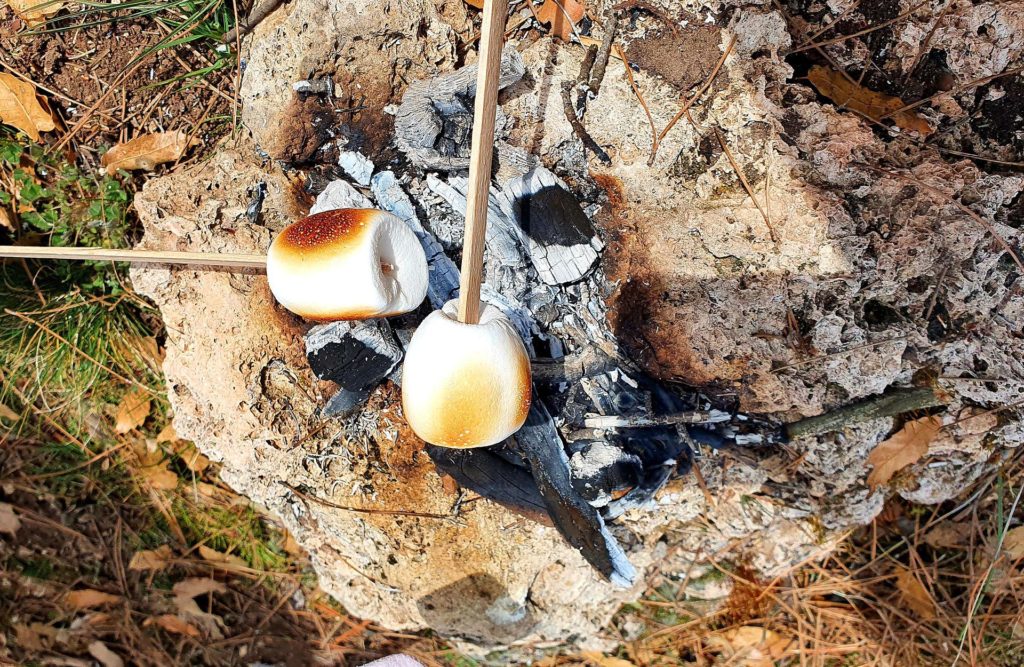
Campfire foods are beloved because they’re not only tasty but usually inexpensive as well.
From hot dogs or sausages to s’mores, meat kabobs, and nachos, these meals and snacks will keep the kids happy and give your wallet some much-needed relief.
Freeze Your Bread
Freezing bread may sound like the weirdest thing ever, but don’t knock it until you try it.
Buying bread ahead of your camping trip is a gamble. Store-bought bread lasts for only about a week. You’d have to stop living off the land and stop at a grocery or convenience store to buy another loaf.
Then the timer starts all over again.
You can’t stop bread from expiring and developing mold, but you can prolong the inevitable by freezing your loaves.
Bread, when kept in the freezer, is in edible condition for six months. That’s right, we said six months! That’s a whole heck of a lot better than only seven days.
You don’t need a lot of room in your RV freezer for bread. You can always freeze half-loaves at a time if that’s more convenient.
Fish for Your Meals
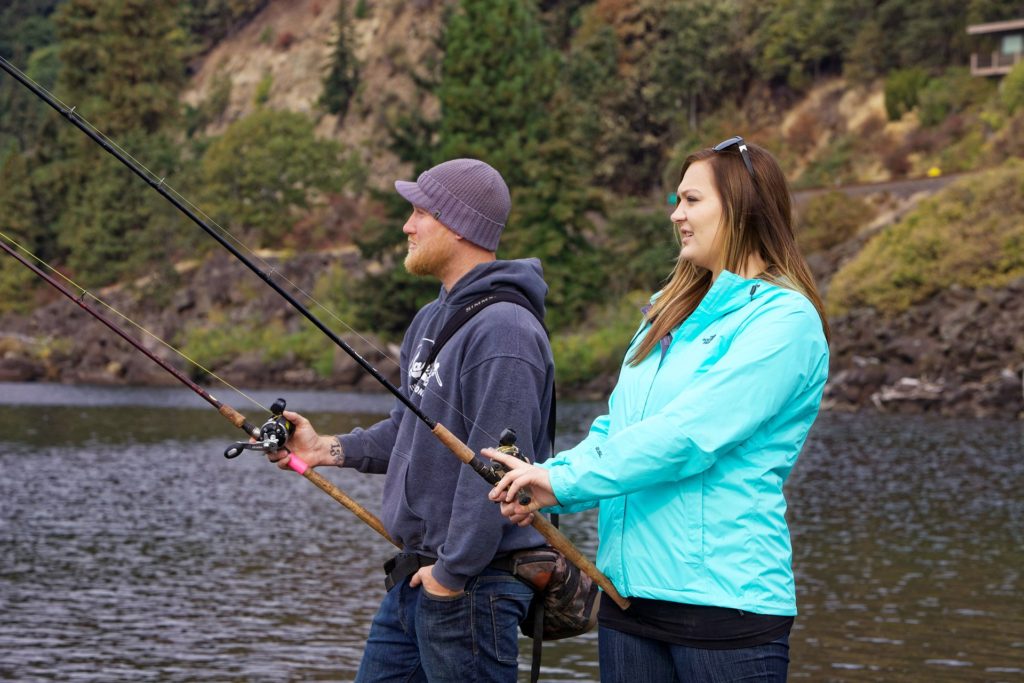
If you’re handy with a fishing rod, then you can reel in your family’s meals by fishing for them.
You’ll need access to a nearby river or lake that’s ideally on the campground. You should also be crystal clear about the fishing policy in the area before you drop your lure in the water.
Some campgrounds might allow fishing but only in a catch-and-release fashion. You wouldn’t be able to keep and cook the fish.
Other campgrounds might not permit you to fish at all. If you tried, you could get kicked out or possibly even fined.
You will have to know how to gut a fish, debone it, and how to store it.
You’ll recall that refrigerated fish lasts for several days, but frozen fish is good for upwards of three months if kept at zero degrees.
The taste of newly caught fish is absolutely unbeatable. The freshness comes through with every bite, which makes an already delectable treat taste even more delicious!
Forage for Food
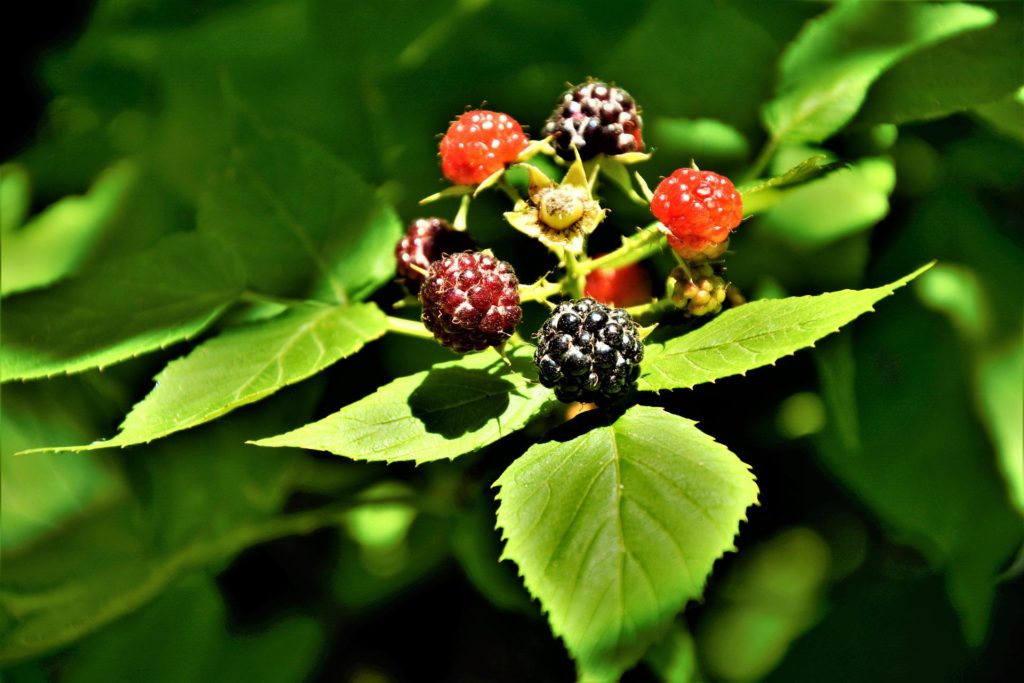
Besides fishing, another way to get free food is to forage.
You’re looking for berries such as blueberries, blackberries, and raspberries. You can also collect dandelion greens and wild asparagus depending on the time of year.
You have to know what these foods look like raw, as they’re sometimes not identical to their counterparts in the produce aisle.
If you’re foraging with your family, then be sure to tell everyone that they should always bring back what they found before they ever ingest it.
The risk of consuming a strange plant or berry is that it could potentially be toxic. You should thus only consider foraging if you have prior experience and know your way around wild fruits and vegetables.
The 9 Best Low-Cost Meals Perfect for RV Living
As promised, let’s go over some cheap foods you can make on a campfire or in your RV kitchen that will be a hit with the whole family!
1. Homemade Pizza
Here’s a meal that’s almost too easy to make. You can use pitas, premade (and precooked) pizza dough, or just about any bready surface really to make pizza.
Slather some sauce on top, sprinkle some cheese of your choice, and then hold the pizzas over a raging fire for a couple of minutes.
The crust will begin to take on that fancy blackened char and the cheese will melt and bubble. Allow the pizzas to cool a little and then serve.
You can make these pizzas for lunch or dinner. Smaller, handheld pies are great for young kids and can even make a suitable snack for adults.
Looking for the best camp cooking methods?
2. Baked Potatoes
A baked potato makes for a nutritious, filling side for a savory breakfast, a hearty lunch, or a yummy dinner.
All you need to do is wrap the potato in aluminum foil and let it cook directly over the fire for a couple of minutes.
Once the potato is cooked, you can eat it as-is or add some cheese, bacon, and sour cream.
Get the most out of your RV oven with these tips.
3. Eggs
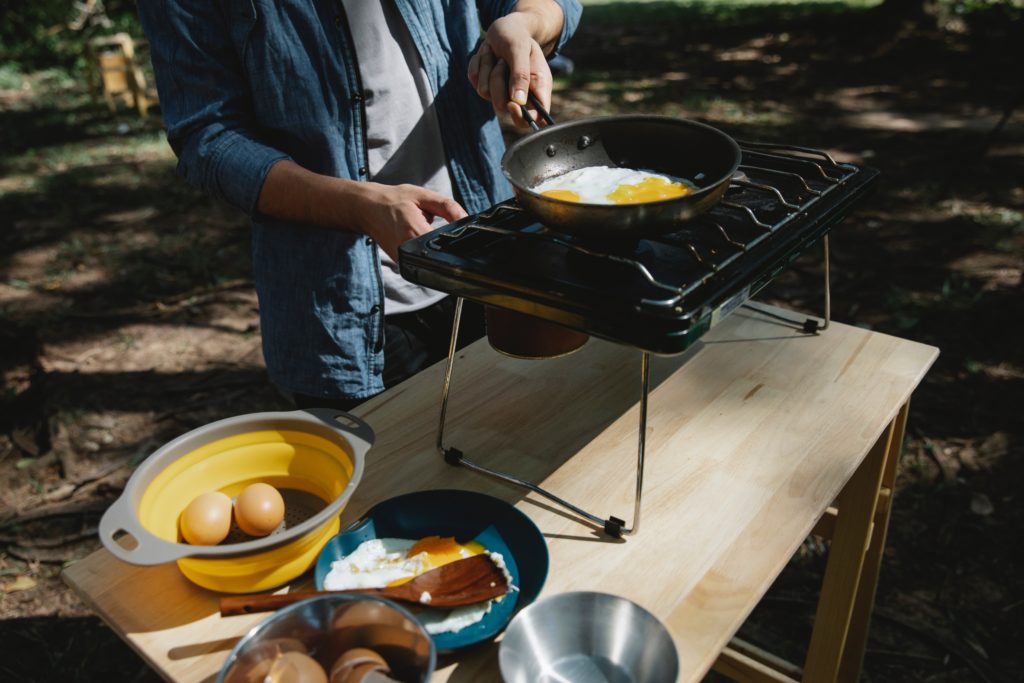
Whether you and the family prefer your eggs scrambled, sunny side up, over easy, or poached, you can make it happen with a campfire or your RV kitchen. This way, everyone can eat their eggs in their favorite fashion.
Eggs are full of protein, good cholesterol, selenium, phosphorus, vitamin B2, vitamin B12, vitamin B5, and folate. They’re a breakfast staple but also make a good side with some lunches or dinners.
4. Sandwiches
It’s time to put that frozen bread to good use! Thaw a few pieces and make a sandwich filled with whatever you want.
The best part about making sandwiches is that you can do it without any sort of cooking, at least usually. Just take some cold meats, some cheeses, and maybe some veggies and you’re all set.
If you’d prefer to warm your sandwich over the fire, you can, but lots of people are just fine with cold sandwiches.
To make a sandwich more filling for dinner, just pile it higher with toppings.
Wraps are also totally fair game when camping, FYI!
5. Hash Browns
Another means of eating potatoes besides munching on cooked spuds is to make hash browns.
Low-cost, fast, and easy to cook, hashbrowns are a great way to get the energy you need for breakfast. Campers should consider cooking hash browns every morning.
6. Pancakes
Perhaps you like your breakfast foods a bit sweeter.
In that case, then if you have a skillet handy, you can either make pancakes in your RV kitchen or over a fire. Just be ready to flip the pancakes maybe sooner than you would when cooking them over a stovetop.
Now is not the time to try crazy flips with the pancakes. You don’t want a half-cooked pancake to end up in the grass or the dirt where it will attract hungry animals in the vicinity.
7. Mac and Cheese
Most of us never grow out of eating mac and cheese, and what’s wrong with that? Rather than use the powdered cheese and shaped noodles that come in the cardboard box, make real mac and cheese when camping.
You can easily melt the cheese over the fire and use the flames to cook the noodles as well. Mix the ingredients, stir to distribute the cheese, and voila, mac and cheese.
The kids might love this dish so much that they’ll never want the store-bought mac and cheese again!
8. Oatmeal
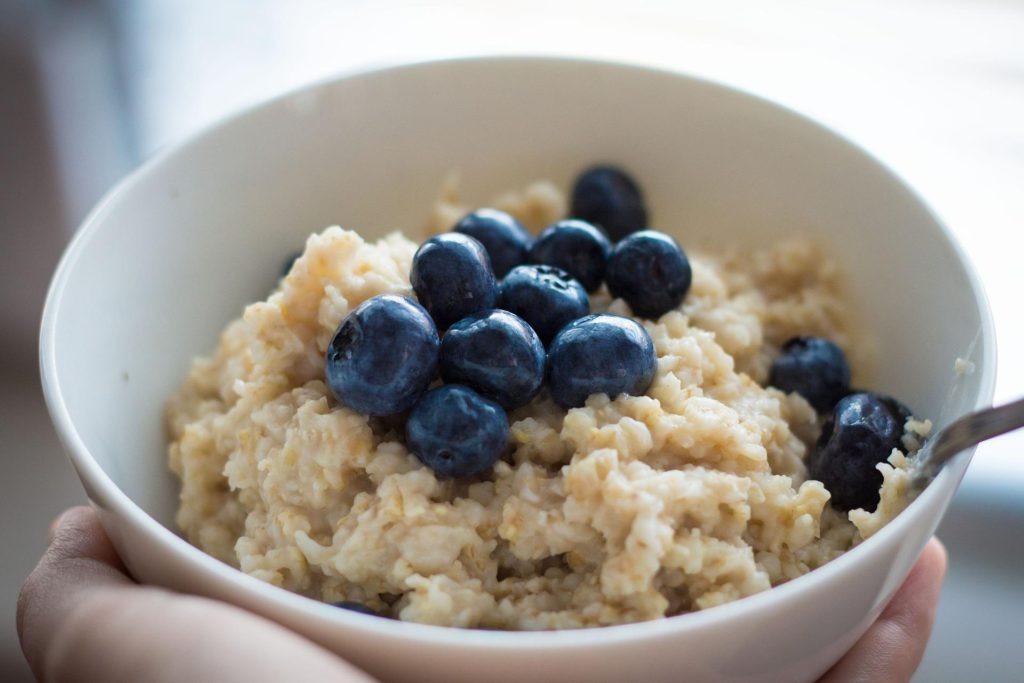
Do you have some leftover oatmeal from making homemade granola? Save it and cook it up for breakfast.
The kids might protest at the thought of having to eat oatmeal. We recommend adding some cinnamon sugar or honey to sweeten this breakfast staple and make it more agreeable for everyone to eat.
9. Kabobs
With a bamboo skewer or several, you can explore endless kabob combinations.
Perhaps you cook steak with pineapple, or you put chicken chunks and peppers on a kabob. Everyone can make their own kabob and then cook it spit-style over the fire just as the sun begins setting.
Conclusion
Eating on the cheap while camping is very much doable! Making your own meals is highly recommended, as is buying meat and bread and freezing them until later.
If you’re comfortable doing so, you can even live off the land by foraging and fishing.
